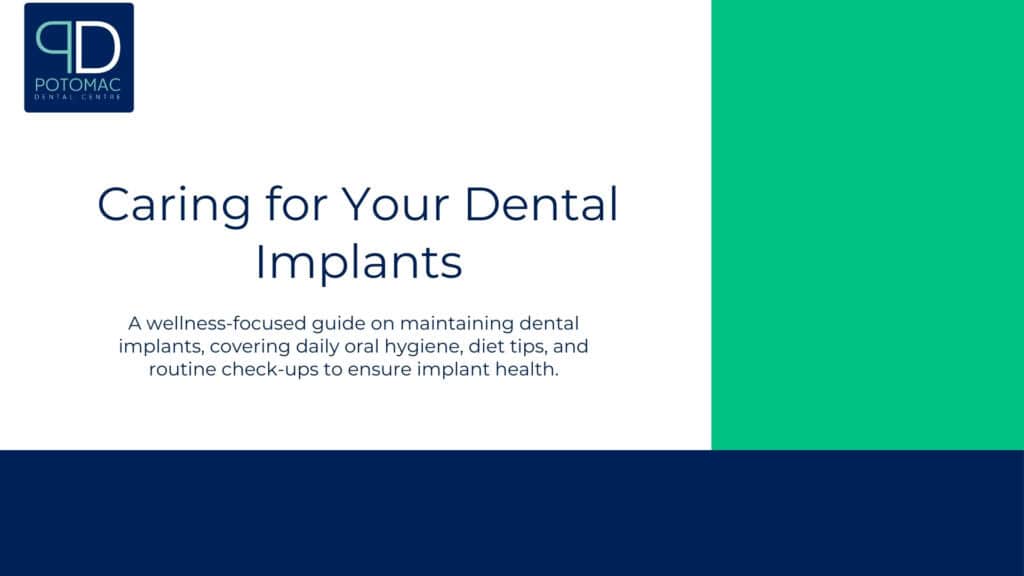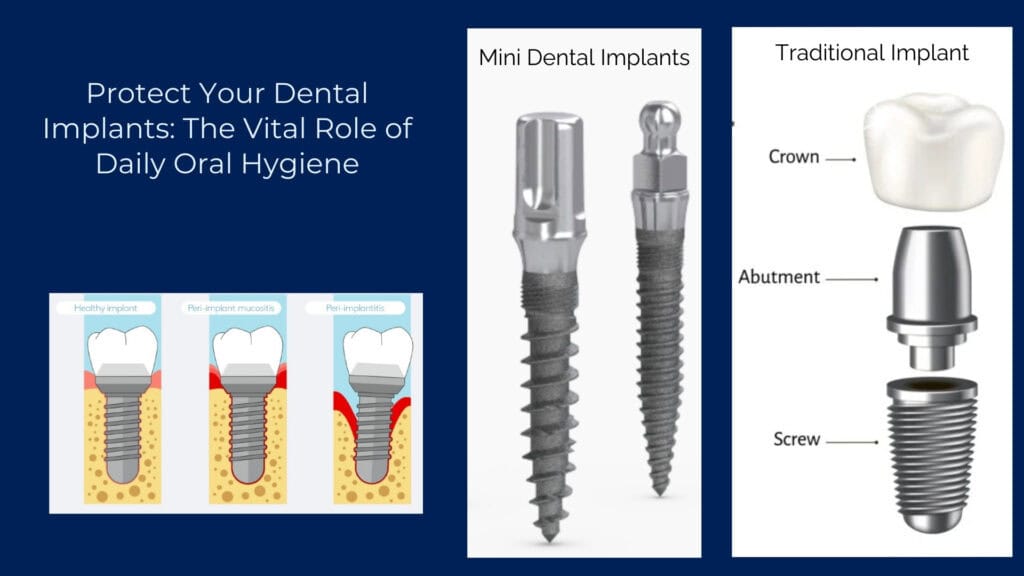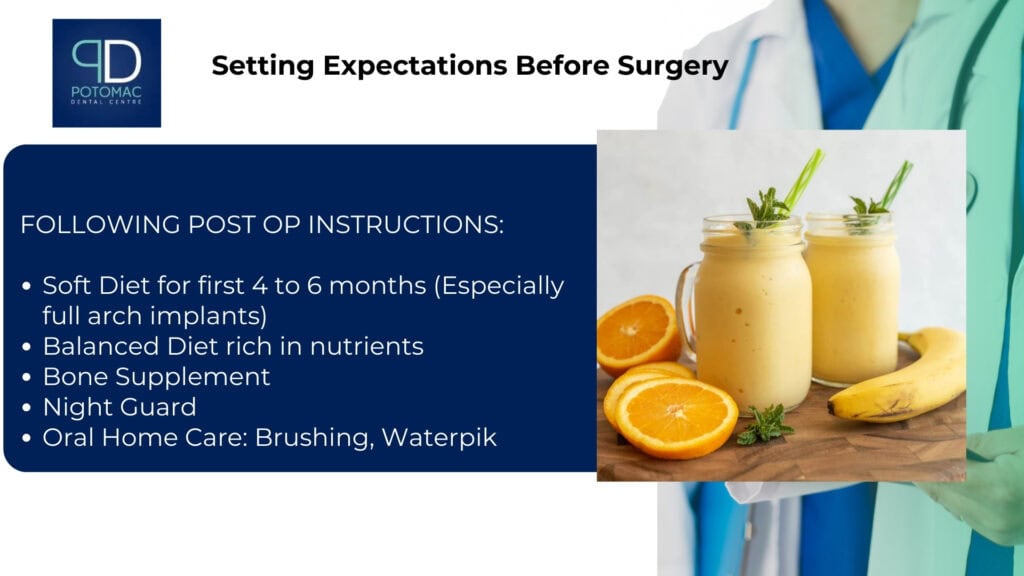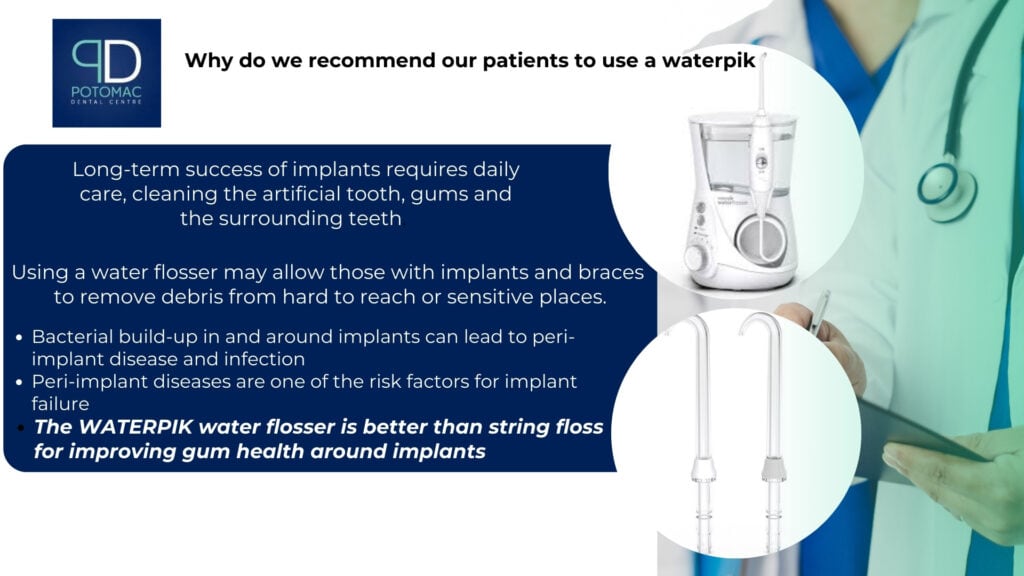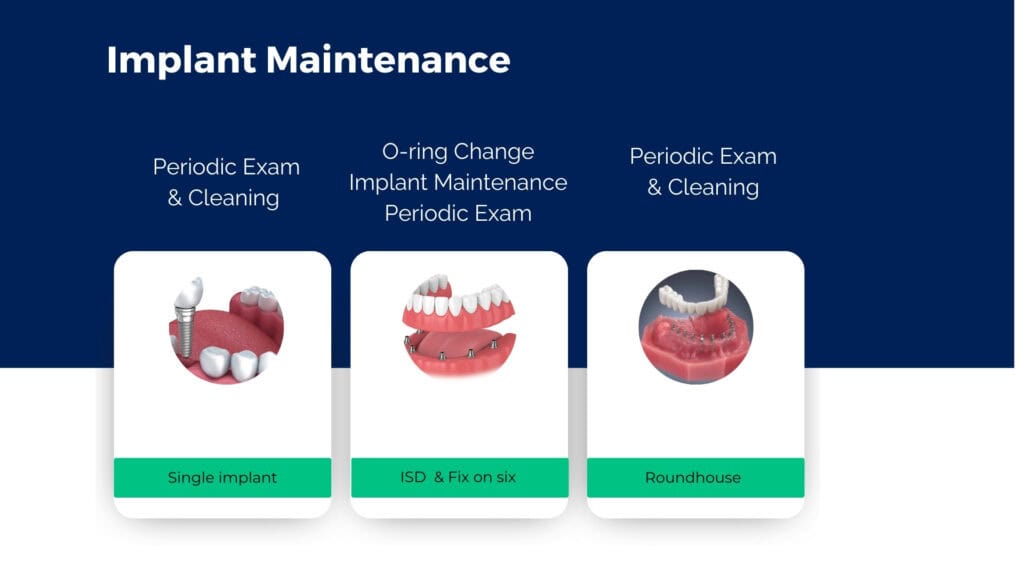How to Care for Your Dental Implants: A Comprehensive Guide
October 11, 2024
Dental implants are a fantastic solution for restoring your smile, but their long-term success depends on how well you care for them, especially in the first few months of healing. To help you maintain your implants and ensure your smile stays healthy for years to come, here are some essential post-operative care tips.
1. Maintain a Soft Diet for the First 4 to 6 Months
After getting your dental implants, particularly for full arch implants, it’s crucial to follow a soft diet for the first 4 to 6 months. This will help prevent any unnecessary pressure on your new implants while they integrate with your jawbone. Here are some soft food ideas:
- Mashed potatoes
- Yogurt
- Smoothies
- Soft fruits (like bananas or applesauce)
- Cooked vegetables
- Eggs
Sticking to soft foods helps to avoid irritation and ensures that the implants have time to heal properly.
2. Eat a Balanced, Nutrient-Rich Diet
A diet rich in vitamins and minerals supports your body’s natural healing process and strengthens your bones, which is vital for the stability of your dental implants. Focus on foods that are high in:
- Calcium (dairy products, leafy greens)
- Vitamin D (salmon, fortified cereals)
- Protein (lean meats, beans, tofu)
A well-balanced diet will help maintain healthy gum tissue and bone around your implants, promoting their longevity.
3. Consider Bone Supplements
Your dentist may recommend bone supplements to support the health of your jawbone as it fuses with the implant. Supplements like calcium and vitamin D can be beneficial in promoting bone density, which is essential for keeping your implants secure.
4. Use a Night Guard if Needed
If you grind your teeth (a condition known as bruxism), using a night guard is crucial. Grinding can put excessive force on your implants, leading to potential damage or failure. A night guard acts as a protective layer, absorbing the pressure and preventing your implants from undue stress.
5. Oral Home Care: Brushing and Flossing
Daily oral hygiene is key to the long-term success of your dental implants. Here’s how to keep them clean:
- Brushing: Brush your teeth at least twice a day using a soft-bristle toothbrush. Make sure to clean the artificial tooth, surrounding gums, and adjacent teeth thoroughly.
- Waterpik Water Flosser: Using a water flosser, like the WATERPIK, can be more effective than traditional string floss for cleaning around implants. It removes debris from hard-to-reach areas and helps reduce plaque build-up around the implant site.
A water flosser is especially beneficial if you have sensitive gums, as it provides a gentle yet thorough clean, promoting gum health around your implants.
6. Prevent Peri-Implant Diseases
Peri-implant disease is a serious condition that can lead to implant failure if not properly managed. It occurs when bacterial buildup around the implant causes inflammation, which can damage the surrounding bone and gum tissue. To prevent peri-implant diseases:
- Follow a strict oral hygiene routine, including daily brushing and flossing.
- Use an antimicrobial mouth rinse if recommended by your dentist.
- Schedule regular dental check-ups to monitor the health of your implants and gums.
7. The Importance of Regular Dental Visits
Even with the best at-home care routine, regular visits to your dentist are essential for maintaining the health of your dental implants. These professional cleanings and check-ups are crucial to catching any potential issues early and ensuring your implants remain in excellent condition. Depending on the type of implant solution you have, we recommend a specific maintenance plan:
- Single Implants and Bridges: For individual implants and dental bridges, we suggest routine dental cleanings and exams to maintain the surrounding gum health and prevent any plaque buildup that could affect the stability of the implant.
- Implant-Supported Dentures: If you have implant-supported dentures, it’s important to schedule regular appointments for maintenance, including O-ring changes, implant maintenance, and thorough examinations. This upkeep is vital to ensure that your dentures remain securely attached and function as intended.
- Permanent Bridge Option (Roundhouse): For those with a permanent bridge or “Roundhouse” option, we recommend periodic exams and cleanings to monitor the condition of both the implants and the bridge. This proactive care helps prevent any complications and ensures the longevity of your dental restoration.
Conclusion
Caring for your dental implants is a commitment that involves maintaining good oral hygiene, following a soft diet initially, taking supplements if necessary, and protecting your implants from excessive force. With consistent care and routine dental visits, your implants can last for years, giving you a confident, healthy smile.


